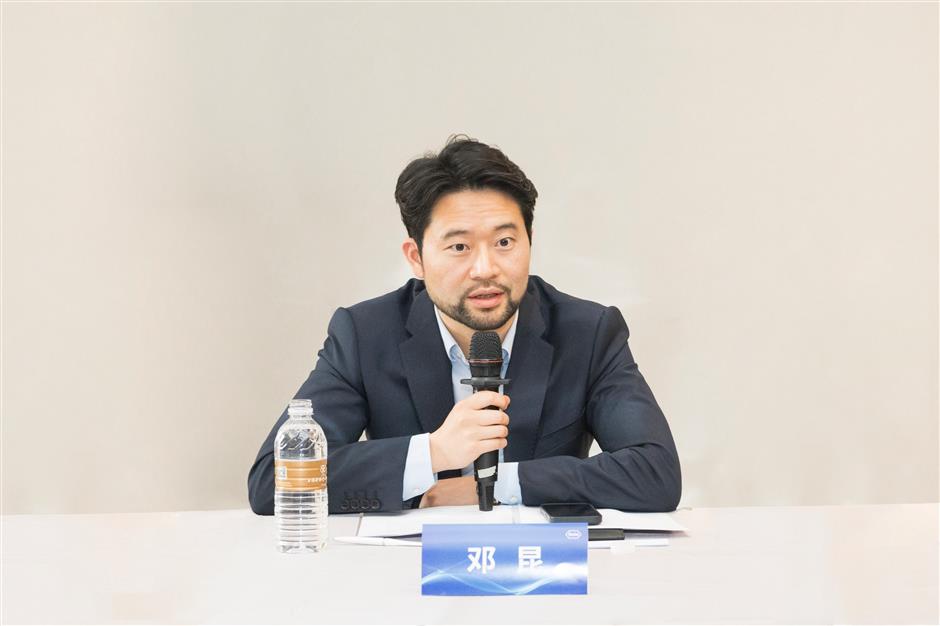Diagnostics empowered by digital solutions and AI
Artificial intelligence and digital solutions are greatly enhancing diagnostic accuracy, enabling early disease detection and supporting personalized healthcare.
Under the “Healthy China 2030” initiative, Roche Diagnostics has been focused on integrating digital technologies to improve healthcare outcomes and making digital tools an effective measure to transform the current laboratories and better influence the future of healthcare.
As a critical driver of high-quality hospital development, the construction of smart laboratories has emerged as a new direction for the evolution of laboratory medicine, with digital technologies serving as the core engine for the transformation and upgrading of laboratories. These technologies enable laboratories to meet ISO15189 accreditation requirements and quality management standards.
Professor Deng Kun, Director of Laboratory Medicine Center of Third Affiliated Hospital of Chongqing Medical University, shared the hospital’s experience, stating “As an important cornerstone of hospital establishment, digitization was written into motto since its inception. Guided by ISO15189, we have constructed a digital foundation that has enabled the laboratory to achieve breakthroughs in closed-loop management, intelligent quality control systems, and precise clinical empowerment.”

Professor Deng Kun, Director of Laboratory Medicine Center of Third Affiliated Hospital of Chongqing Medical University
“Last year, we introduced cobas® connection modules (CCM) laboratory automation solution and digital solutions like AI-powered real-time quality control solution Smart QC and AI serum quality management system,” he says. “Laboratory medicine should adopt a data-driven approach with process upgrade as the core of digital transformation, ultimately achieving value enhancement.”
Moritz Hartmann, Global Head of Roche Information Solutions, highlights that “Roche’s Digital Health strategy focuses on enhancing clinical actionability and connecting care throughout the patient journey. This starts from prevention to early diagnosis to making decisions for treatments and then to managing therapy and the disease and also to monitoring the success of the therapy,” he says. “In particular, we believe that with these digital technologies, we have opportunities to detect emerging diseases earlier, which gives a great opportunity for better treatments and better outcomes for patients.”

Moritz Hartmann, Global Head of Roche Information Solutions
“At Roche Diagnostics, our goal is to offer integral digital health solutions that connect laboratories, hospitals, clinical settings, and patients at home. These solutions should provide patients with all the essential information they need to make informed decisions. We use technologies like artificial intelligence to process this data and extract meaningful insights for clinical decision-making, as well as for patients with chronic diseases.”
“So, for China, we're really pursuing ‘in China for China’ strategy. So that we can really think very closely focused on the needs, and then we’re able to translate these into products that actually are tailored for the Chinese environment,” he says.
Richard Yiu, General Manager of Roche Diagnostics China, says, “Starting from 2023, we have been offering digital solutions in the Chinese market to optimize clinical practice, improve lab efficiency, and ultimately improve patient outcomes.”

Richard Yiu, General Manager of Roche Diagnostics China
“To date, 20 digital products were successfully launched under the brand name Lanyun, with over 250 installed bases across multiple application areas. These solutions, which meet high-quality healthcare needs, have garnered widespread market recognition.”
The newly launched AI-powered real-time quality control solution tailored for medical laboratories, Smart QC, exemplifies how Roche Diagnostics China leverages digital products to extract actionable insights.
“We are also working to manage diseases like liver disease and metabolic diseases — those posing huge societal burdens in China — by launching comprehensive management plans for liver disease screening, diagnosis, and treatment, as well as a structured management model for metabolic diseases,” says Yiu.
Nearly half of the global new cases and deaths of liver cancer occur in China annually. Elecsys® GAAD, an algorithm to help diagnose early-stage Hepatocellular Carcinoma (HCC), stands out as a prime example of bringing the digital strategy to life in China. The implementation of GAAD in more than 40 hospitals in China has transformed numerous patient outcomes.
As global strategies and technology deeply integrate into Chinese healthcare scenarios, the value of digital transformation is transcending the boundaries of laboratories and clinics — patients gain more precise and accessible medical services; physicians are liberated from repetitive tasks and reshaped in professional value, while innovative ecosystems built by hospitals and companies are shaping the future of the healthcare industry.
Generating useful insights from health data is an opportunity to accelerate a more holistic and democratized healthcare model, enabling healthcare practitioners to detect diseases early and save more lives. For Hartmann, in the future with the implementation of AI, Roche is looking into becoming more and more dynamic in our development of AI, so that AI can actually, in real time, directly derive those insights.
“I also hold a very optimistic view of China, an innovation powerhouse in the world, leading the change in healthcare and benefiting from this grand vision.”
“I am confident that the improvements in digital health infrastructure, the growing capabilities of AI, and the research and development driven by our talented teams at Roche will soon trigger the next big breakthroughs in this field.”
Talking about the future digital strategies in the Chinese market, Yiu says that Roche Diagnostics China will continue to build a “patient-centric” ecosystem with the existing experience in in-vitro diagnostics and digital insights.
“To be a part of the driving force for ‘Healthy China 2030,’ Roche Diagnostics will continue to increase investment in digital innovation, expand the digital pipeline, and maintain close relevance to our core business; continuously iterate and optimize our products and empower diagnostic testing, clinical decision-making, and disease management through digital solutions; and work with partners as a local innovation driver to accelerate the implementation of innovative digital products that meet local market needs,” he says.











